 Petzlover
Petzlover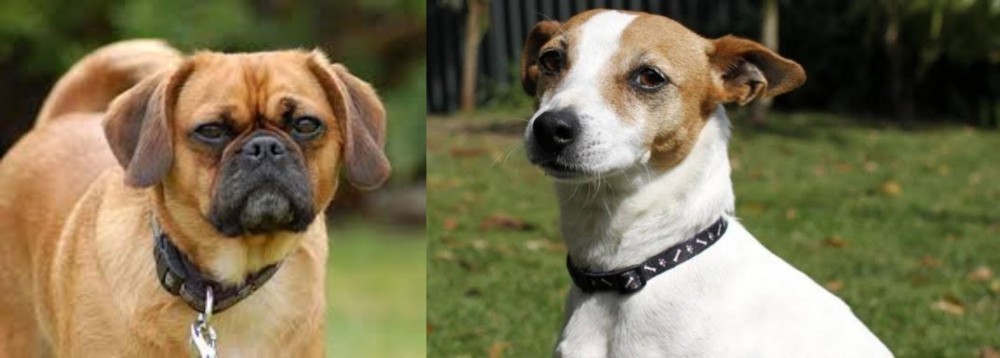 Pugalier is originated from United States but Tenterfield Terrier is originated from Australia. Both Pugalier and Tenterfield Terrier are having almost same height. Pugalier may weigh 20 kg / 44 pounds lesser than Tenterfield Terrier. Both Pugalier and Tenterfield Terrier has almost same life span. Both Pugalier and Tenterfield Terrier has same litter size. Both Pugalier and Tenterfield Terrier requires Low Maintenance.
Pugalier is originated from United States but Tenterfield Terrier is originated from Australia. Both Pugalier and Tenterfield Terrier are having almost same height. Pugalier may weigh 20 kg / 44 pounds lesser than Tenterfield Terrier. Both Pugalier and Tenterfield Terrier has almost same life span. Both Pugalier and Tenterfield Terrier has same litter size. Both Pugalier and Tenterfield Terrier requires Low Maintenance.
 The Pugalier is a designer dog which dates to the 1980s and 1990s. Being a fairly new dog breed, it doesn’t have a long or detailed history.
The Pugalier is a designer dog which dates to the 1980s and 1990s. Being a fairly new dog breed, it doesn’t have a long or detailed history.
It is thought that they were first bred in the United States. There was a purpose behind the crossing of the Pug and the Cavalier King Charles Spaniel. Dog enthusiasts were looking for a dog that would have less breathing problems with a longer nose.
There are a few dog breed registries that recognize the Pugalier as a designer dog breed, one of which is the American Canine Hybrid Club.
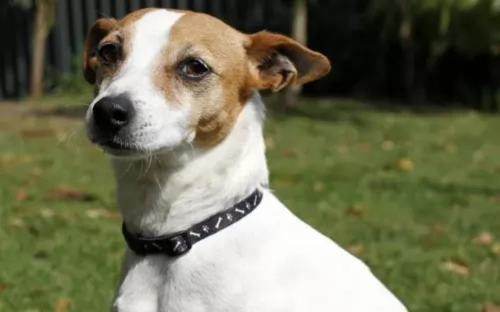 The ancestors of the Tenterfield Terrier came to Australia with the British and from them came this Australian breed. The English terriers were bred to be ratters on the ships to Australia. Today’s breed is a hardy, strong, athletic and agile dog. These first dogs were miniature Fox Terriers, bred for ratting. The miniature Fox Terrier was an established breed in the late 19th century in Australia with families and was know as a Mini Foxie. The breed became a steady presence in homes by the 1920’s.
The ancestors of the Tenterfield Terrier came to Australia with the British and from them came this Australian breed. The English terriers were bred to be ratters on the ships to Australia. Today’s breed is a hardy, strong, athletic and agile dog. These first dogs were miniature Fox Terriers, bred for ratting. The miniature Fox Terrier was an established breed in the late 19th century in Australia with families and was know as a Mini Foxie. The breed became a steady presence in homes by the 1920’s.
The breed might not have been named after the area of Tenterfield as many have guessed. Instead they may have been named after a breeder. The owner of the Tenterfield saddlery was called Tenterfield Saddler and he owned several of the breed. In 1990, Don Burke, a television personality suggested the breed be named the Tenterfield Terrier.
The Miniature Fox Terrier Club of South Australia. Now there were several clubs in Australia and a lot of disagreement about exactly what type of dog a miniature fox terrier was. Some did not think the name was legitimate, but they wanted recognition from the Australian National Kennel Club (ANKC). So, they became the Tenterfield Terrier Club of Australia in 1993. They were recognized by 2002.
Today the breed standard for the Tenterfield Terrier is different from the one for the Miniature Fox Terrier. They are now entirely separate breeds. In addition to the ANKC, the breed is recognized by the New Zealand Kennel Club but not by the AKC. It is also recognized by the American Pet Registry, Inc, the American Canine Registry and the Dog Registry of America, Inc.
 The Pugalier looks fairly similar to a pug but with a slightly longer nose and longer ears. The tail isn’t as coifed as with the Pug, but is longer and straighter, sometimes curling slightly over the back.
The Pugalier looks fairly similar to a pug but with a slightly longer nose and longer ears. The tail isn’t as coifed as with the Pug, but is longer and straighter, sometimes curling slightly over the back.
As with any crossbreed, the dog’s appearance can vary between the two dogs. They can be small to medium sized, usually standing at between 30 and 35cm in height and weigh between 6-10kg.
Pugaliers mostly have a fairly short coat but there are some which have longer hair because of the Cavalier's influence. The coat can be an apricot color, white, brown or even tri-color - white, black & tan.
Friendly, social ad loving, the Pugalier makes a splendid pet. He will easily adapt to life in the city or the countryside and he also gets along well with children and other dogs. They can also be amusing and entertaining, while being intelligent too.
You’ll find your Pugalier easy to train as he is intelligent and then he becomes a splendid pet with training and socialization, being obedient and well mannered wherever he is.
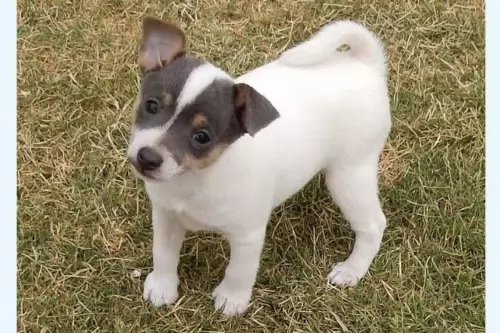 The Tenterfield Terrier is square and compact. He has a head shaped like a wedge and unusual in the terrier group. They have pricked ears and are predominantly white mixed with tan or black. They could also be tri-colored in black/tan and white or tan/liver and white. They have naturally occurring bob tails or docked tails. The nose is usually black unless the dog is liver colored, they have liver noses. The jaws are strong, and lips are tight with a strong neck.
The Tenterfield Terrier is square and compact. He has a head shaped like a wedge and unusual in the terrier group. They have pricked ears and are predominantly white mixed with tan or black. They could also be tri-colored in black/tan and white or tan/liver and white. They have naturally occurring bob tails or docked tails. The nose is usually black unless the dog is liver colored, they have liver noses. The jaws are strong, and lips are tight with a strong neck.
 The Pugalier gets his characteristics from both the popular parent breeds he comes from – the Pug and the Cavalier King Charles Spaniel.
The Pugalier gets his characteristics from both the popular parent breeds he comes from – the Pug and the Cavalier King Charles Spaniel.
Both these dog breeds are immensely popular, friendly, loving and amusingly entertaining. He is an excellent dog choice for the first time dog owner.
The Pugalier is an intelligent dog breed and easy to train too. When you bring such a sweet dog into your home, you open the doors to a deep, meaningful friendship and loyalty from your canine pet.
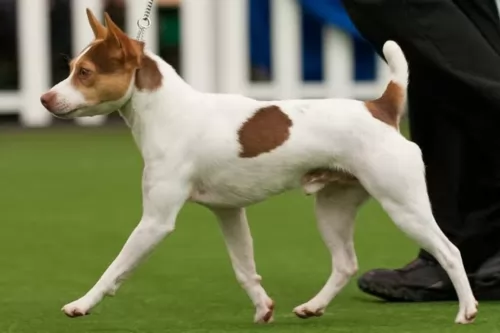 3.Adaptability – they need space even though they are small. They need a lot of exercise. They can adapt if they get another exercise. They can live in apartments and can play indoors as well as out.
3.Adaptability – they need space even though they are small. They need a lot of exercise. They can adapt if they get another exercise. They can live in apartments and can play indoors as well as out.
4.Learning ability – They are extremely intelligent, but they can be stubborn like all terriers.
 Less wrinkles and a longer snout make the Pugalier a healthier dog than the purebred Pug. The dog, when well cared for, can still reach a good age of 14 or so years.
Less wrinkles and a longer snout make the Pugalier a healthier dog than the purebred Pug. The dog, when well cared for, can still reach a good age of 14 or so years.
Eye problems can still be a problem as both the Pug and the Cavalier have protruding eyes.
Patellar Luxation is another health issue to watch for. The patella or the kneecap is dislocated and the dog will have difficulty with putting weight on the leg. Your vet may perform surgery on your dog and the prognosis is very good if arthritis hasn’t already developed.
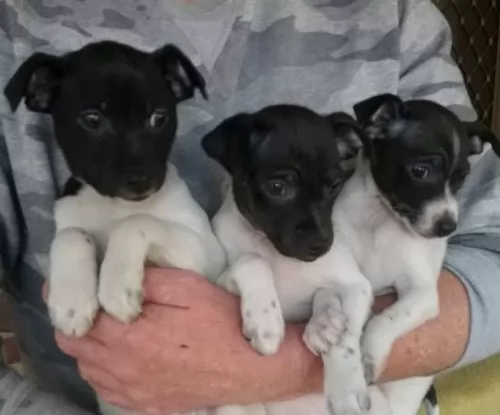 They are small in stature and because of their face they seem to have dental issues. The breed does not have a lot of health issues but deals with the same issues as many small terriers. Not all members of the breed are susceptible to these, but some are just like the Australian Terrier.
They are small in stature and because of their face they seem to have dental issues. The breed does not have a lot of health issues but deals with the same issues as many small terriers. Not all members of the breed are susceptible to these, but some are just like the Australian Terrier.
 Your Pugalier will require daily exercise, and he will just love a walk. The Pug part of him will tell you to go slowly with exercise and to ensure it isn’t too strenuous.
Your Pugalier will require daily exercise, and he will just love a walk. The Pug part of him will tell you to go slowly with exercise and to ensure it isn’t too strenuous.
The Spaniel part of him will love a robust ball game or running backwards and forwards between two people throwing a frisbee. Watch the Pugalier during exercise and don’t allow him to get overly hot and bothered.
Pugaliers do shed hair and you will need to brush him twice a week. Check his eyes and inside his ears and make sure all is as it should be.
Trim his nails and look inside his mouth for bad teeth. Dog’s can’t tell you they’re in pain and bad teeth can cause terrible pain and a lot of health issues throughout the entire body.
Every dog needs an excellent diet if he is to ward off illness and live a long life.
There are some excellent commercially manufactured dog foods on the market so read the packaging carefully and avoid those ones with low quality ingredients like colorants, lots of preservatives and fillers.
High quality dry kibble can be made more inviting when you add in some home-cooked food twice a week. Boiled chicken, sweet potatoes, brown rice or pasta, carrots and spinach will be excellent for him – it is simple and nutritious.
Chop the food up finely and add it into the dry kibble. Also, your little pet will thrive on some raw meat occasionally too as this keeps the coat shiny and and the skin free of infections. Make sure he is never without a constant supply of fresh, cool water.
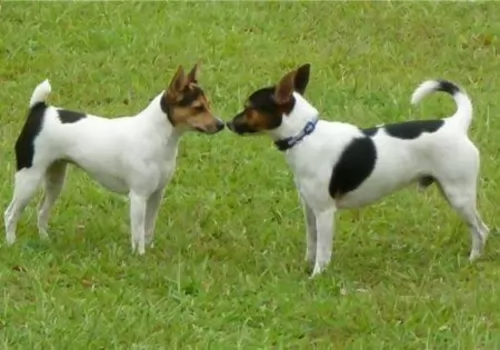 1.Feeding the puppy – Don’t overfeed but do feed high quality puppy food for small breeds and terriers.
1.Feeding the puppy – Don’t overfeed but do feed high quality puppy food for small breeds and terriers.
2.Feeding the adult – This is an active breed but don’t overfeed. Feed a high quality adult dog food for terriers or small breeds. Feed 2 times a day.
4. Games and Exercises – The breed has a high energy level and needs a lot of exercise. He is a terrier and loves to “go to ground”. Play activities that allow him to do that are best. He plays barn hunt, lure coursing and terrier specific competitions.